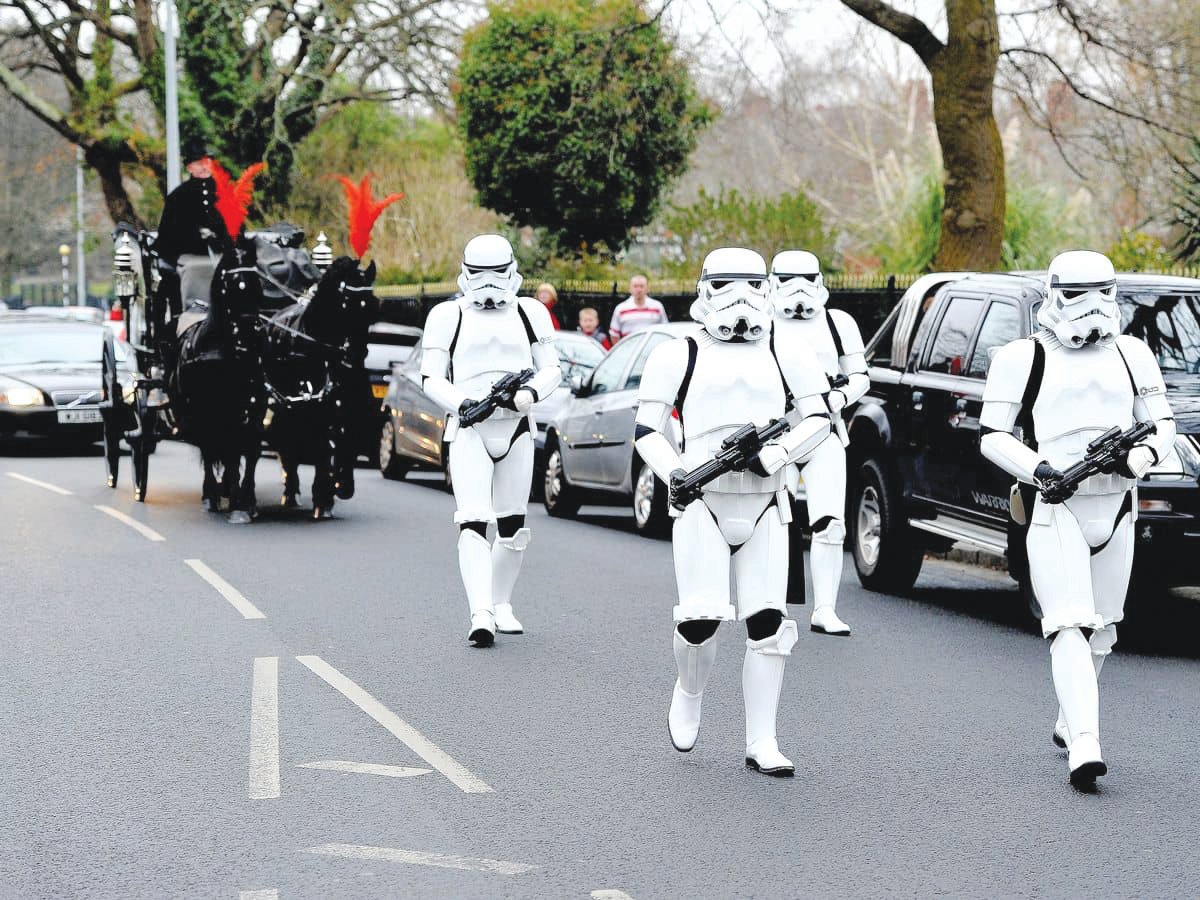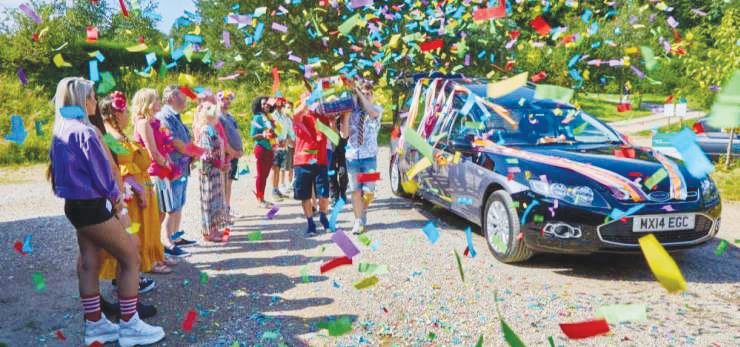Families opting out of traditional funerals to personalize celebration of life
CLAY COUNTY – It’s often said funerals are not for the dead, but for the living, a way of saying goodbye to a loved one. Although this may be true, funerals don’t serve just one thematic …
This item is available in full to subscribers.
Attention subscribers
To continue reading, you will need to either log in to your subscriber account, or purchase a new subscription.
If you are a current print subscriber, you can set up a free website account and connect your subscription to it by clicking here.
If you are a digital subscriber with an active, online-only subscription then you already have an account here. Just reset your password if you've not yet logged in to your account on this new site.
Otherwise, click here to view your options for subscribing.
Please log in to continueDon't have an ID?Print subscribersIf you're a print subscriber, but do not yet have an online account, click here to create one. Non-subscribersClick here to see your options for subscribing. Single day passYou also have the option of purchasing 24 hours of access, for $1.00. Click here to purchase a single day pass. |
Families opting out of traditional funerals to personalize celebration of life
CLAY COUNTY – It’s often said funerals are not for the dead, but for the living, a way of saying goodbye to a loved one. Although this may be true, funerals don’t serve just one thematic end.
“Funerals usually have negative connotations and celebration of life a positive one, but it doesn’t have to be one or another. It can be both,” said Craig Seaton, planning director at Broadus-Raines Funeral Home and author of “Some Perfect Tomorrow: True Stories of Hope in Loss, Love in Grief, and Life in Death.”
In the last decade, more people are opting out of traditional funerals. Resources are becoming available to help people when they're dealing with loss that allows people to try to personalize a significant ritual moment after death and try to figure out the best way to memorialize their loved one.
You might recognize the myriad of ways in which funerals have gotten more personalized to the deceased: requests for mourners to wear nonblack clothes, video collages for the families, personal items to be displayed, music liked by the deceased playing at funerals and tombstones that pay homage to the person's hobbies.
The etiquette for funeral ceremonies is evolving. People are searching for new ways to celebrate the lives of their loved ones.
“Our society has changed. Every single profession reflects the society in which it operates, whatever it is. I think what it has done, essentially, is react to those changes,” Seaton said. “The services haven’t changed apart from technology, but the ceremony has definitely changed.”
So how are they changing? For one, many are turning to alternative, non-traditional ceremonies that focus on celebrating the life of the deceased, rather than mourning their deaths.
“Having the space to share stories, to laugh, cry and smile gives people a gamut of different ways, different options, to grieve,” said Mary Denard, director of Hardage-Giddens Rivermead Funeral Home. “Because again, everyone in the room may be at a different stage of grief. It just opens up a lot of communication to talk about the loved one.”
Another significant difference is the physical setup of the ceremony.
“We are starting to see more people opting for round tables instead of pews. This way makes the ceremony more liked, and airier. You might be sitting with someone you may not know, and it spurs a conversation. You can talk about the loved one in a way that you wouldn’t be able to in a pew, where you might be sitting three spaces down from someone not making eye contact,” Denard said.
Another prominent change in funeral and memorial services is the music played during the ceremony. Music influences the mood and attitude and is a meaningful way of honoring the dead. Although gospel music is commonly used in funeral services, Denard said more people are opting for nontraditional music tailored to the preferences and needs of the deceased, rather than a given religious or spiritual tradition.
“As more Americans are coming out as spiritual rather than religious, more people are shying away from the Judeo-Christian or even the Muslim or Jewish religious ceremony,” Seaton said.
Denard agreed and said: “It [non-traditional funerals] just opens up a lot of communication to talk about the loved one and not a pastor or minister of any kind, in a sense, they are not the main focus.”
According to the National Funeral Directors Association, cremation has surpassed traditional burial, and by 2040, four out of five Americans are predicted to choose cremation over casket burial.
“You can also have your ashes pressed into a coral reef or sent to space. You can form them into diamonds or tattoos and things like that,” Denard said.
Not only are funeral services more open to alternative burials and ceremonies, but Seaton believes people are also becoming more comfortable with planning their funerals, which further drives the trend toward personalization.
“You just have to be willing to say that you want it,” he said.











